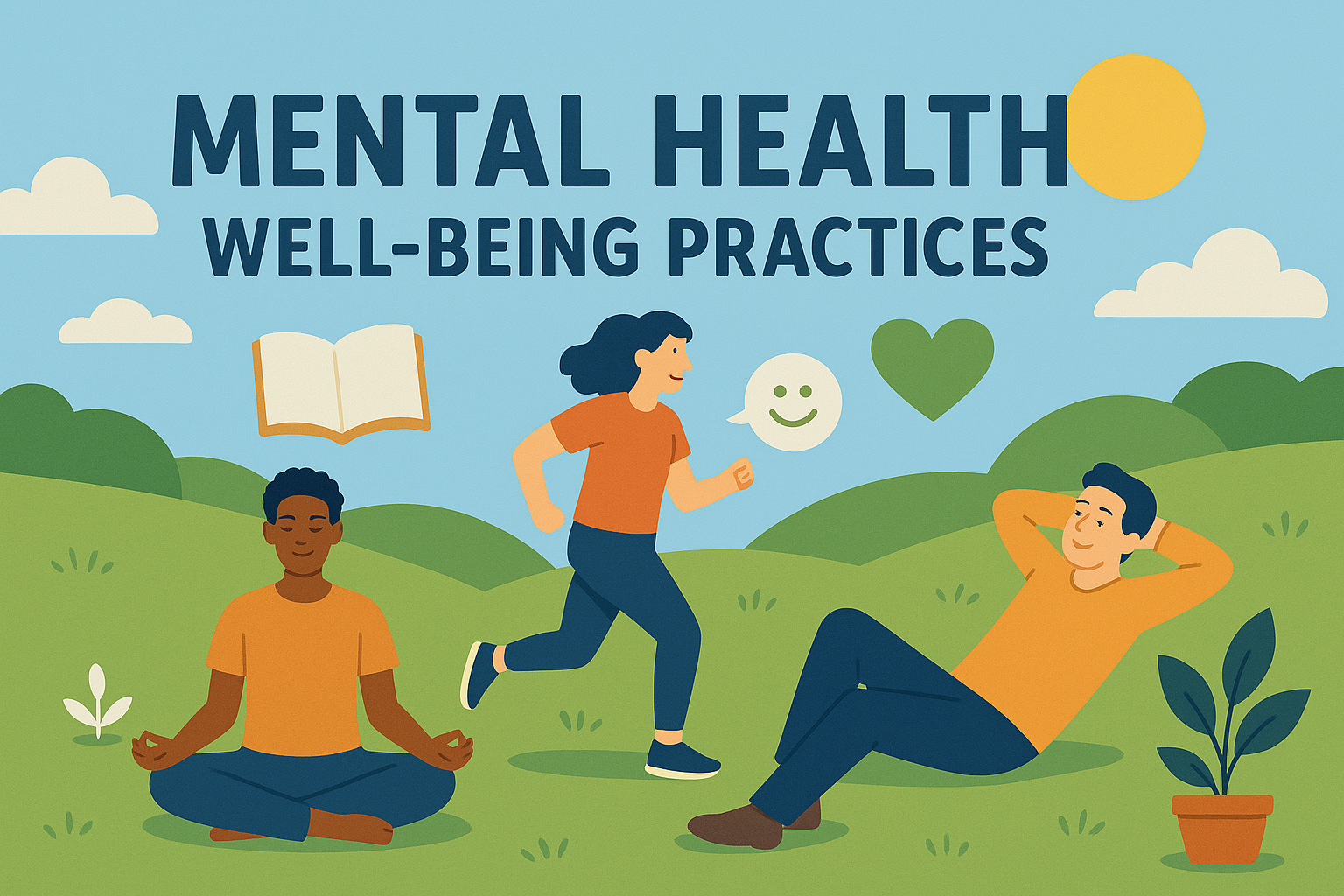Self-Care and Mindfulness: Stepping Stones for Better Mental Wellbeing

In today's chaotic world, we might take utmost care of our health, but often let the brain take the backseat while doing so. We strive to do our best at all times to ensure our mental and physical health is maintained. Be it work, family, or social responsibilities we want it all together. All these achievements come at the cost of us neglecting the warning signs of emotional exhaustion, which can negatively impact our mental health. The reality, that our mental well-being is the key to everything else, hits us when it is at the lowest, often revealing underlying mental health conditions. We’re here today to explain two of the most effective ways to safeguard ourselves from emotional exhaustion: self-care and mindfulness, both vital for mental health.
What Is Self-Care?
The first thing that comes to one’s mind when thinking about self-care, is treating yourself. While treating yourself with delicious food nourishes the body, have you thought of ways to nourish your mind? Self-Care is about making conscious decisions that nourish your physical, emotional, and mental well-being. It's everything from sleeping and eating well to setting boundaries when necessary.
How many times in a day do we ask ourselves "What do I need right now?" — and then actually hear a response that isn’t influenced by others? That is the real self-care that we lack.
Practiced regularly, self-care:
- Decreases stress and anxiety
- Avoids burnout
- Enhances mood and concentration
- Boost resilience in challenging times
And no, you don’t have to join costly gym classes or take extra efforts to attend them either. Just Taking just five minutes can significantly improve your mental wellbeing. of good attention to yourself every day can make a significant difference.
The Power of Mindfulness
A famous quote by Grand Master Oogway says: “Yesterday is history, tomorrow is a mystery, but today is a gift. That is why it is called the present.” Easier said than done, most of us spend most of our time worrying about the “I shouldn’t have”s or the “I have to”s rather than being in the present.
When we practice mindfulness, which can generally be referred to as meditation, our bodies and minds take a pause. We begin to pay attention to the little things — starting with our breathing patterns, the taste of our food we last ate, the pain on our arms that never hurt during the day. This awareness keeps us grounded and less reactive, but more attentive during stressful times. It is the “Me Time” that you never knew you wanted.
Benefits of mindfulness include:
- Increased emotional regulation
- Reduced levels of stress
- Better sleep
- Increased self-awareness and compassion can significantly improve your mental wellbeing.
- Better health conditions can positively influence your mental and physical health.
- Healthier heart.
How They Work Together
Mindfulness and self-care are like the Yin and Yang. Mindfulness enables you to see what you require, and self-care assists you in taking action on those requirements.
Like the Yin, mindfulness may enable you to become aware that you're neglecting your mental health. tired and stressed. The Ying suggests rescheduling an unimportant meeting, stepping outside for a quick walk, or calling someone you trust to improve your mental health. Used in tandem, these two strategies form an effective system for supporting emotional equilibrium and Building inner resilience is essential for maintaining mental health and well-being..
6 Easy Ways to Strengthen Mental Wellbeing Today
You don't have to start all over by changing your lifestyle in order to improve your mental health and feel better. Here are a few simple ways to introduce more steadiness and calmness into your life:
- Pause and breathe: Stop and take a few deep breaths whenever you feel frazzled. It only takes a minute and can instantly bring you back to center.
- Establish healthy boundaries: Learn to say no to activities that drain you and yes to activities that replenish you.
- Maintain a gratitude listPutting three things you appreciate each day into writing can improve your mental health and change your frame of mind for the better.
- Get your body moving: Body movement — even walking or stretching — aids tension release and improves your mood.
- Unplug often: Give yourself brief respite from screens and notifications to improve your mental health and re-engage with yourself and the world.
- Speak it out: Whether a friend or a therapist, saying what you're feeling can ease the burden and provide new insight.
Final Thoughts
You are not an AI — you require rest, care, and room to breathe to maintain your mental and physical health. Self-care and mindfulness are not indulgences. They're essential practices that enable you to be your best version, for yourself and others.
Spending just a few minutes a day checking in with yourself can improve your mental health and result in long-term gains in your mental and emotional well-being. It's not about perfection. It's about presence — and making decisions that allow you to feel more balanced, calm, and whole.
You're worth that care. Begin today — even with something tiny.

Soumya Rajadhyaksha
I am a people's person. I try and make sure, that any person who I come in contact with, is helped or benefited by me.
Related Blogs
No related blogs available.
